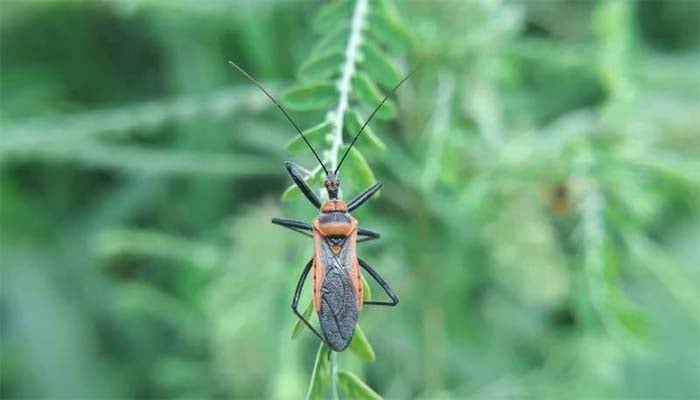
The Centers for Disease Control and Prevention (CDC) reported that a potentially life-threatening Chagas disease is rapidly spreading across the US through an insect.
Chagas disease is caused by a parasite, named Trypanosoma cruzi (T. cruzi), also called kissing bugs.
Whenever an individual comes into contact with an infected bug's feces, they contract the disease.
Although kissing bugs have been detected in 32 states, Chagas disease has now been classified as endemic across the US.
Up to eight states have confirmed the cases of the potentially deadly disease, including Arizona, Texas, Mississippi, Louisiana, Missouri, California, and Arkansas.
Wildlife and pets, including dogs are also at a higher risk of contracting the disease. Between 2000 and 2018, there were 29 confirmed and 47 suspected cases, though experts believe the actual numbers are significantly higher than the reported ones.
The World Health Organization (WHO) reported that over 7 million people are infected worldwide, with 10,000 deaths annually.
Chagas disease’s symptoms occur in two phases. The acute phase that causes mild symptoms, including swelling, fever, and muscle pain.
While the chronic phase may lead to severe complications, affecting digestive system, cardiac issues, and nervous system.
It can be treated by nifurtimox and benznidazole, which are more effective when given early.
